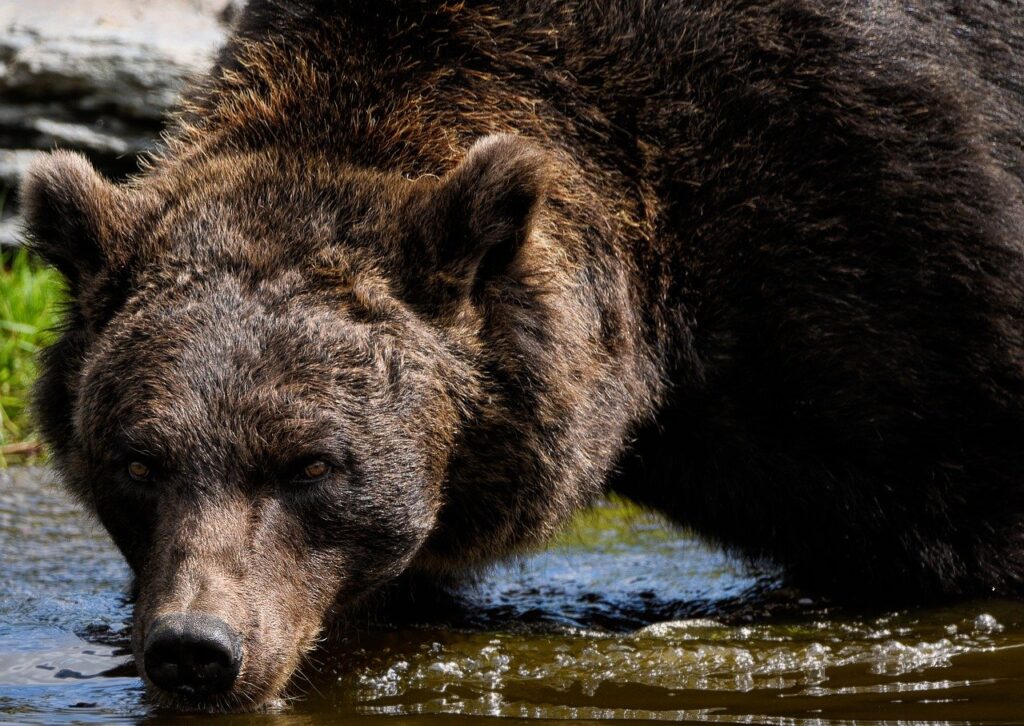Introduction:
- A captivating introduction to brown bears, highlighting their size, strength, and importance in various ecosystems.
1. Species and Distribution:
- Overview of brown bear species and their geographical distribution across different continents, focusing on regions like North America, Europe, and Asia.
- Details about their habitats, including forests, tundra, and mountainous regions.
2. Physical Features and Adaptations:
- Detailing the physical characteristics of brown bears, such as their size, fur color, and distinctive shoulder hump.
- Discussing adaptations for survival, including hibernation, keen sense of smell, and excellent swimming abilities.
3. Behavior and Social Structure:
- Elaborating on the complex behavior and social structures within brown bear populations.
- Communication, mating rituals, and family dynamics within the species.
4. Diet and Feeding Habits:
- Understanding the dietary habits and foraging behavior of brown bears, focusing on their omnivorous nature.
- Their role in the ecosystem as both predators and scavengers.
5. Hibernation and Reproduction:
- Insights into the hibernation patterns and reproduction cycle of brown bears.
- Gestation, birth of cubs, and nurturing of the young within the bear family.
6. Threats and Conservation:
- The challenges faced by brown bears, including habitat loss, human-wildlife conflict, and illegal hunting.
- Ongoing conservation efforts, reserves, and organizations working for brown bear protection.
7. Ecological Importance:
- The significance of brown bears in maintaining ecological balance and the impact of their presence on their ecosystems.
8. Cultural and Folklore Significance:
- The importance of brown bears in indigenous cultures, folklore, and their symbolic representation in different societies.
9. Wildlife Observation and Tourism:
- Ethical considerations and responsible practices for observing brown bears in their natural habitat.
- Encouraging respect for their environment during wildlife encounters.
Conclusion:
- A reflective conclusion emphasizing the importance of brown bear conservation and the need for their protection in the wild.
This blog post aims to provide an in-depth understanding of brown bears, covering their biology, behavior, cultural significance, conservation challenges, and the importance of their preservation in the wild.

